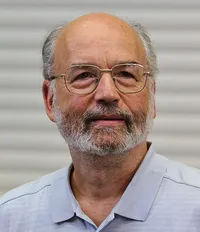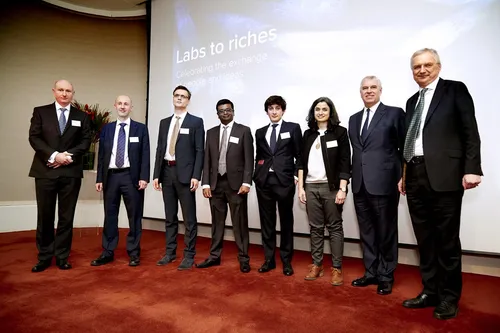Applied Computing News
Adi Shamir elected a Foreign Member of the Royal Society
 Adi Shamir, the Paul and Marlene Borman Professor of Applied Mathematics at the Weizmann Institute of Science, has been elected this week a Foreign Member of the Royal Society. He is a co-inventor of the RSA algorithm (along with Ron Rivest and Len Adleman), a co-inventor of the Feige–Fiat–Shamir identification scheme (along with Uriel Feige and Amos Fiat), one of the inventors of differential cryptanalysis and has made numerous contributions to the fields of cryptography and computer science.
Adi Shamir, the Paul and Marlene Borman Professor of Applied Mathematics at the Weizmann Institute of Science, has been elected this week a Foreign Member of the Royal Society. He is a co-inventor of the RSA algorithm (along with Ron Rivest and Len Adleman), a co-inventor of the Feige–Fiat–Shamir identification scheme (along with Uriel Feige and Amos Fiat), one of the inventors of differential cryptanalysis and has made numerous contributions to the fields of cryptography and computer science.
In 1976/77, Adi was a post-doctoral researcher in Computer Science at Warwick!
A hat trick at the 45th ICALP
 In the Logic, Semantics, Automata and Theory of Programming track of the 45th International Colloquium on Automata, Languages, and Programming (ICALP), three out of 30 accepted papers are by members of the department. ICALP is one of the most selective and longest established international conferences in computer science, and the flagship annual event of the European Association for Theoretical Computer Science. The papers are:
In the Logic, Semantics, Automata and Theory of Programming track of the 45th International Colloquium on Automata, Languages, and Programming (ICALP), three out of 30 accepted papers are by members of the department. ICALP is one of the most selective and longest established international conferences in computer science, and the flagship annual event of the European Association for Theoretical Computer Science. The papers are:
- Reducing CMSO Model Checking to Highly Connected Graphs by Ramanujan M. S., Daniel Lokshtanov, Saket Saurabh and Meirav Zehavi
- O-Minimal Invariants for Linear Loops by Shaull Almagor, Dmitry Chistikov, Joel Ouaknine and James Worrell
- When is Containment Decidable for Probabilistic Automata? by Laure Daviaud, Ranko Lazić, Marcin Jurdziński, Filip Mazowiecki, Guillermo Perez and James Worrell
Dr. Gihan Mudalige Awarded a Royal Society Industry Fellowship

Dr. Gihan Mudalige has been awarded a 4-year, Royal Society Industry Fellowship to work with Rolls Royce plc., on their turbomachinery design simulation applications from September 2018.
Companies such as Rolls-Royce, crucially depend on High Performance Computing (HPC) based numerical simulation applications for the design of turbomachinery. These complex multi-physics and engineering applications, predominantly based on computational fluid dynamics (CFD), even in their simplest form, provide insights into aspects of aircraft engines which could not otherwise be achieved in the absence of physical testing. Developing such simulation applications is difficult and expensive, taking years to write, test and verify. They can easily contain millions of lines of code. Consequently, such programs have lifetimes of decades compared to the supercomputers that run them, which advances every 2-4 years. In the next five years, HPC systems are expected to reach thousand times the capabilities of current systems, attaining exascale (1018) performance where a single system can perform million-trillion computations every second. The range of processor architectures, networks, memory, their configurations and scale make it difficult to know what type of systems will dominate exascale machines and how best to programme them to gain optimal performance. Poor performance means less simulation for your money or worse, a completely inoperable suite of codes. Such an outcome will mean a significant loss of investment. The underlying objective of this fellowship project is to re-design Rolls-Royce’s simulation codes to meet these challenges. This work will utilize the OP2, high-level embedded Domain Specific Language developed by Dr. Mudalige and his research collaborators at University of Oxford, PPCU Hungary and Imperial College London, aiming to re-engineer Rolls-Royce’s CFD applications suite and deploy it for production simulations.
Photo (© The Royal Society): The Royal Society Industry Fellows of 2018 (Round 1): from left to right Duncan Maclachlan, Steve Morgan, Del Atkinson, Gihan Mudalige, Anas Al Rawi, and Aurora Cruz-Cabeza, with HRH Prince Andrew, The Duke of York and Prof. Andrew Hopper, Labs to Riches presentation event, 20 March 2018, at the Royal Society head office in London.
